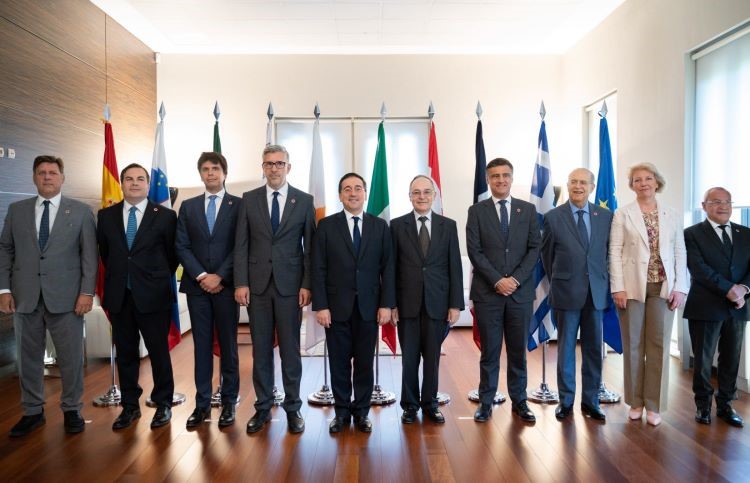The Diplomat
The Minister of Foreign Affairs, José Manuel Albares, inaugurated yesterday at Casa Árabe’s headquarters in Madrid the ministerial meeting of European Affairs of the Med9 Group, which dealt with the preparation of the next Med9 Summit, to be held next autumn in Spain.
During the event, Albares highlighted the role of the Med9 Group as a promoter of European integration and urged to strengthen this alliance as a forum for consultation among the EU’s Mediterranean States and to reinforce the European response to the challenges faced by the Mediterranean region. The Minister also held a meeting with the Director General of Casa Árabe, Irene Lozano.
The Med9 Group (also known as EuroMed, Europe Mediterranean) brings together Cyprus, Croatia, Slovenia, France, Greece, Italy, Malta, Portugal and Spain, the nine EU countries integrated in the Mediterranean culture. Founded in 2013 in Brussels at the initiative of Spain and Cyprus as an informal forum to address issues of common interest, in 2021 it incorporated its first two Slavic members, Croatia and Slovenia, who yesterday participated for the first time in the meeting of Ministers and Secretaries of State for European Affairs.
The Group has held eight Summits, the first in Athens in September 2016. Spain has hosted one Summit to date, held in Madrid in 2017, and will host again next September in Alicante. During the 2020 Summit in Corsica, the Group’s leaders (including Prime Minister Pedro Sánchez) supported Greece against the gas exploration being carried out by Turkey in waters belonging to Greeks and Cypriots.
At the same event yesterday, the Secretary of State for the European Union, Pascual Navarro, and the rest of his European colleagues reaffirmed the will to consolidate the Med9 as a regional group to act as a driving force for the EU and stressed the need to maintain a structured political dialogue and reinforced cooperation between the EU and its Southern Neighborhood, as reported by the Ministry of Foreign Affairs in a press release.
They also reviewed issues such as the lessons learned from the response to the pandemic and the Russian aggression against Ukraine, including its consequences in terms of energy, inflation or food supply, “highlighting the need for the EU to have an economy that responds to the needs of citizens and reinforces its strategic autonomy”.







